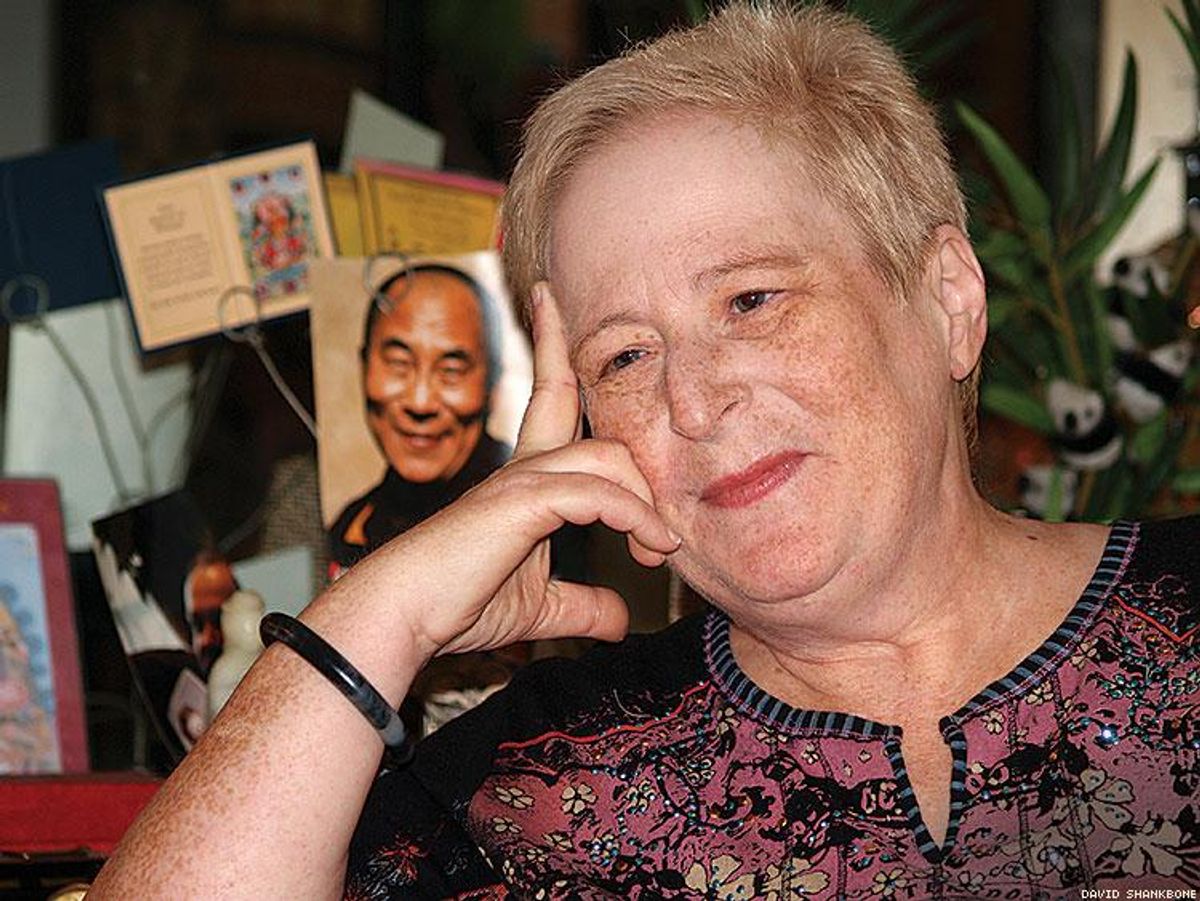I first read Eve's work in grad school in the mid-'90s. By 1998, I had left grad school and was working in an entry-level job at HarperCollins in New York. There, my supervisor told me she was auditing a course with Eve Kofosky Sedgwick at the City University of New York's Graduate Center.
Eve was teaching a yearlong Proust course, in which students read Remembrance of Things Past throughout the entire year. I dashed to the Graduate Center and begged my way into the course as an auditor. I ended up matriculating as a Ph.D. candidate one semester later. In the five years I spent as a Ph.D. student, I took every course that Eve taught -- I think it was seven different classes. I joked that I majored in "Eve Studies."
To say her impact on me was world-changing would not be an understatement. I am not alone in feeling this way.
My involvement with Eve's prodigious and curious intellect came during her CUNY years, from 1998 onward. While issues of queer identity and queer politics were still central to her being, she had also taken on new intellectual engagements, some of which were related to her long-term cancer diagnosis.
Her CUNY classes engaged with fun, varied topics, among them Buddhism, chaos theory, textiles, performativity, and shame theory. Additionally she taught some studio arts classes: one about crafts, one about bookmaking.
Despite this ever-changing curriculum, there was always the sense that one was following threads that touched other threads, and together created a canon of thought. It was like listening to a legacy artist like the Beatles. A Hard Day's Night may sound very different from The White Album, but when you study the whole canon, later parts will reflect earlier parts, making the entire experience all the richer.
It was Eve who lovingly suggested I drop out of my Ph.D. program in 2003. I wasn't really progressing with my own body of work, although I was certainly having a great time. She promised she wouldn't abandon me as a friend, and after I left the program I grew to develop a friendship with Eve and [her husband] Hal and many of their friends, colleagues, and other students. Eve and Hal liked the Magnetic Fields, and when I would go on tour, Eve would make sure to send former students or colleagues to the show. In this Buddhist way, she actively worked to connect her community, to make us into a web with no center, rather than centering on her. I really believe she did this to lessen the pain of her loss from our lives. And, while I miss her intensely, it is comforting to have the web of Eve's community around me, whether it be social, or to read and watch academic lectures about her work.
Eve passed away in April 2009, and that December I became pregnant. I decided to name my daughter Eve. It worried me somewhat to do it. But she was always so gracious about sharing everything she had with everyone around her, I had a feeling she wouldn't mind.


















































































